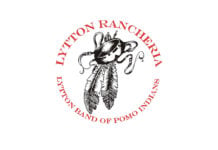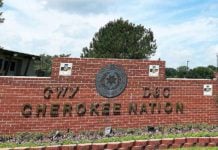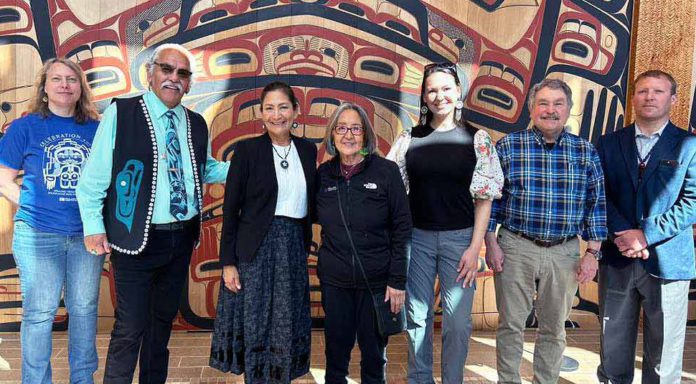ANCHORAGE, AK – Secretary of the Interior Deb Haaland wrapped up a multi-day visit to Alaska, as part of the Biden-Harris administration’s fifth Investing in America tour, where she highlighted how historic resources from the President’s Investing in America agenda are bolstering climate resiliency, advancing salmon conservation, and strengthening local economies in Alaska. The trip to Alaska is the Secretary’s fourth since taking over as the Department’s leader.
Through President Biden’s Investing in America agenda, the Department has focused significant resources in Alaska that range from the launch of a new Voluntary Community-Driven Relocation program and resources for wildfire resilience to programs to address legacy pollution left by extractive industries and a new “Gravel to Gravel” initiative.
Secretary Haaland visited Katmai National Park and Preserve, stewarded by the National Park Service, which is famous for supporting the world’s largest remaining wild sockeye salmon run as well as the community of life that depends on these salmon, including abundant Alaskan brown bears. Through the Department’s “Gravel to Gravel” Initiative, and with over $40 million in new resources from the Investing in America agenda, the Department is advancing tribal co-stewardship and salmon conservation across Alaska’s Yukon, Kuskokwim, and Norton Sound region. The initiative is the Department’s response to a resounding call for federal action from Alaska Native tribes and subsistence users. The initiative is building coalitions and implementing efforts to restore degraded streams for improved fish passage, expanding salmon-run assessments that incorporate Indigenous Knowledge, replenishing native vegetation, and supporting further research on salmon productivity, health and survival.
Secretary Haaland visited with several Alaska Native communities that are benefiting from nearly $560 million in new resources from President’s Investing in America agenda to advance climate resiliency and community-led relocation. President Biden’s Bipartisan Infrastructure Law and Inflation Reduction Act provided a huge boost for the Bureau of Indian Affairs’ Tribal Climate Resilience program, allowing for historic levels of funding to be made available to tribes and tribal organizations. This funding is part of more than a collective $50 billion invested through the Investing in America agenda to advance climate adaptation and resilience across the nation, including in communities that are most vulnerable to climate impacts.
In Juneau, Secretary Haaland met with leadership from the Tlingit and Haida Tribes and toured the Sealaska Heritage Institute, which helps protect Tlingit, Haida and Tsimshian cultural traditions. The Central Council of Tlingit and Haida has received $2.6 million for multiple climate resiliency projects, including to support a regional community greenhouse program that will provide increased food security and food sovereignty.
In Sitka, Secretary Haaland met with the Sitka Tribe of Alaska and toured Sitka National Historical Park, which commemorates the site of the 1804 battle in which Russian soldiers lay siege on Tlingit warriors. The Sitka Tribe is utilizing $298,000 from the Bipartisan Infrastructure Law to support the Southeast Alaska Tribal Ocean Research network with developing a protect-in-plan.
















































